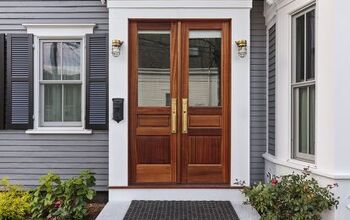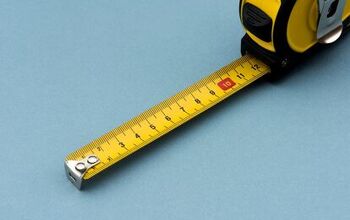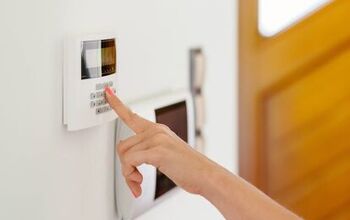Tips for Moving From an Apartment to a House

Many people make the jump from an apartment to a house in search of more space. Luckily, it’s easier to move from an apartment to a house than it is to downsize to an apartment. Nonetheless, you may feel overwhelmed, and that’s why we put together some essential tips for moving from an apartment to a house.
Figure out the floor plan of your new house when moving from an apartment. This will help you figure out how much furniture you need and budget accordingly. Create a list of tasks and work that your new house needs so you can address them one at a time as you get settled.
Make sure to label the moving boxes by room so you can easily unpack them. Don’t hesitate to ask as many questions as possible during the negotiation process. This will help you quickly get used to your new house. Follow along as we highlight the best tips for moving from an apartment to a house.
How To Transition From An Apartment To A House
1. Consider The Floor Plan
There is a strong chance that your new house has more space than your apartment. In that case, you must buy furniture and decorations to fill the space. There’s no reason to spend a fortune all at once, but you also don’t want your house to feel empty.
Think about your new home’s floor plan and consider what you’re missing. Keep in mind that you must furnish your kitchen, living room, dining room, family room, and bedrooms. Some homes also have foyers, offices, and screened-in porches.
Of course, you’ll be able to bring over all your furniture from your apartment. It helps to work with an interior designer who can accommodate your budget and help you furnish your home. You can also find great deals on used furniture online via Facebook Marketplace and other sites.
2. Create A Budget
It’s no secret that moving can be stressful and expensive. That said, you can make your move much easier if you create a budget. Factor in everything from moving truck rentals and supplies to transportation and furniture costs.
It’s also important to consider whether you want to hire movers or move without professional help. Keep in mind that a rainy day fund is essential when you move from an apartment to a house. Random expenses pop up all the time when you move, so you must prepare for that.
Moving costs between $1,200 and $4,800, on average, and that doesn’t include unexpected expenses. It helps to set aside up to a few months of income before moving, in case an emergency pops up.
3. Label Boxes
Packing is one of the most annoying parts of moving, especially if you are disorganized. You can make your move much easier if you label each box you pack by the room. For example, label and keep all the boxes together that are meant to go to your bedroom.
This will come in handy when you get to your house and start to unpack. It’s also helpful when it comes to loading the truck. After all, you don’t want to put fragile boxes full of dishes under boxes full of heavy items for your garage.
4. Think About The Work The House Needs
Few houses are perfect when you move in, even if you build it. That’s why you must prepare yourself for some fixes and upgrades that may be needed. Of course, you can request that the seller make some of the repairs before you move in.
You may still be left with some of the responsibility to fix everything from door gaps to plumbing issues. Luckily, an inspector or appraiser should be able to tell you what needs to be done. Think about whether you must hire someone to address the problems or if you can handle them yourself.
Don’t force yourself to spend a fortune or repair everything all at once. Instead, create a list of priorities and address them one at a time. This will let you handle your other moving responsibilities and enjoy time at your new home.
5. Talk To The Previous Owner
Do you have a relationship with the previous owner? Some sellers prefer not to talk to the people who buy their home whereas others are open to it. If the latter applies to you, then you may want to ask several questions about your new home.
The previous owner may be able to give tips about home maintenance and provide contacts for the services they use. For example, you could ask them which HVAC company or lawn care service they use. It’s best to ask these questions during the inspection and negotiation process, but it’s never too late if they’re open to a conversation.
6. Find And Label Important Items
It can take a while to get used to a new house. This becomes much easier if you find and label important things, such as the main water valve, right when you move in. This will come in handy in case an emergency pops up.
It’s also a great idea to mark your electric box breakers, so you know which one controls which section of your house. Make sure to ask where the heat and air filters are before you move in. Regularly change these filters every 90 days to keep your HVAC system healthy and to lower your power bills.
7. Change The Locks
It may slip your mind, but it’s always a great idea to change the locks when moving from an apartment to a house. The previous owner may be a great person, but it’s a good idea to change the locks when you buy a house. This will boost your privacy and security and help provide a fresh start at your new home.
The cost to change your locks varies based on the hardware, how many doors you have, and the locksmith’s rate. Locksmiths charge an average of $62 per hour, but it may cost $75 per hour. Otherwise, you may have to simply pay a flat rate per lock. In that case, you can expect to spend up to $80 per lock on the high end.
8. Stay Organized
Moving is overwhelming, and it’s easy to lose track of important information and documents. However, it’s a good idea to keep track of this information as you may eventually sell your home. Keep a drawer, safe, or file cabinet full of your insurance information and receipts for utilities and appliances.
That way, you can tell the future buyer when you installed the air conditioner or furnace. This is the type of information many prospective buyers want to know before they buy a house.
9. Introduce Yourself To Your Neighbors
You can make your transition from an apartment to a house much easier if you start on the right foot with your neighbors. After all, the last thing you want is to make a bad first impression in your new neighborhood. That said, you don’t need to rush the process, as you will naturally meet your neighbors soon enough.
You are most likely to meet your neighbors while you do yard work outside. For example, watering the flowers is a great opportunity to say hello to your neighbors who are out on a walk. Otherwise, you could make a bigger effort and go out of your way to meet your neighbors.
In that case, you could knock on their door and give them a plant or some cookies. You can even host an outdoor gathering, grill some food, and invite your new neighbors.
Summing It Up
Carefully calculate how much furniture you need based on the floor plan of your new house. Create a moving budget that includes furniture, transportation, and an emergency fund when you move from an apartment. It’s also a great idea to change the locks, find the main water valve, and keep track of your utilities and appliances. This will help if you ever choose to sell your house, as the buyer will want to know this information.
Related Guides:

Nick Durante is a professional writer with a primary focus on home improvement. When he is not writing about home improvement or taking on projects around the house, he likes to read and create art. He is always looking towards the newest trends in home improvement.
More by Nick Durante



























